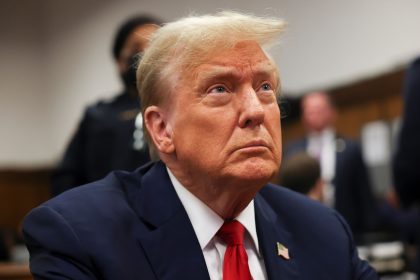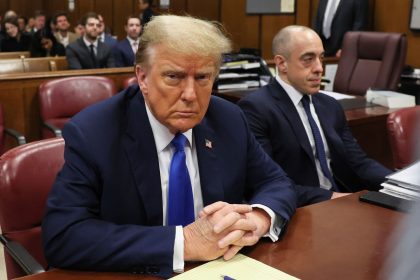Senators Say They’ve Struck Deal on $1.2 Trillion Infrastructure Bill
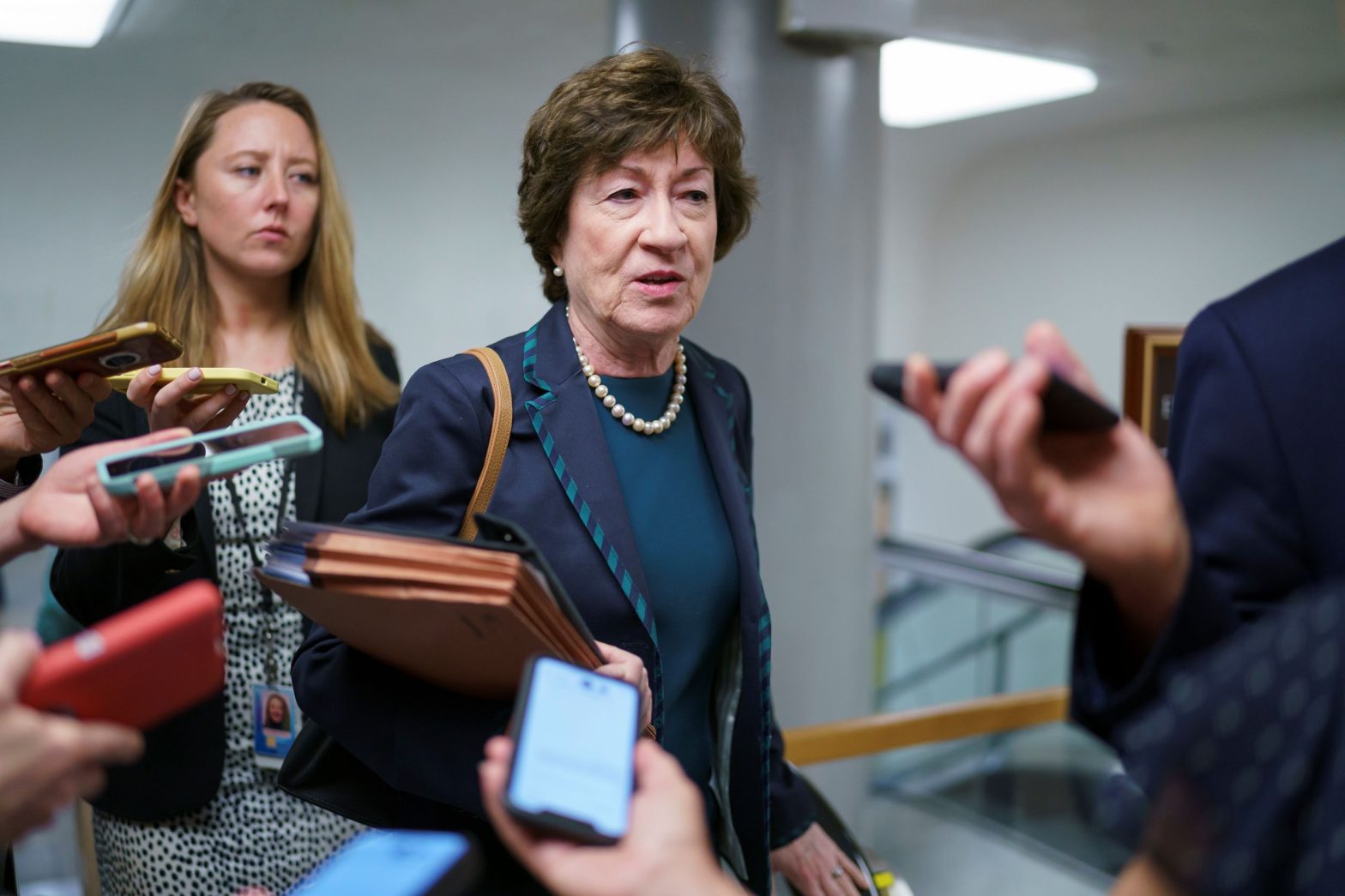
WASHINGTON — A bipartisan group of senators who have been negotiating for weeks on an infrastructure bill since forging an alliance with the White House say they’ve reached a deal on the “major issues” and can now move forward.
“I think we’re good to go,” Sen. Jon. Tester, D-Mont., told reporters on Wednesday.
Sen. Rob Portman, R-Ohio, who led the negotiations for the Republicans in the bipartisan group confirmed “We are prepared to move forward.”
Most importantly, he said, “there is a CBO official score that covers much of the bill,” something many Republican senators deem necessary before voting on the measure.
The deal is expected to cost $1.2 trillion over eight years, or $974 billion over five years, and offers more than $550 billion in new spending.
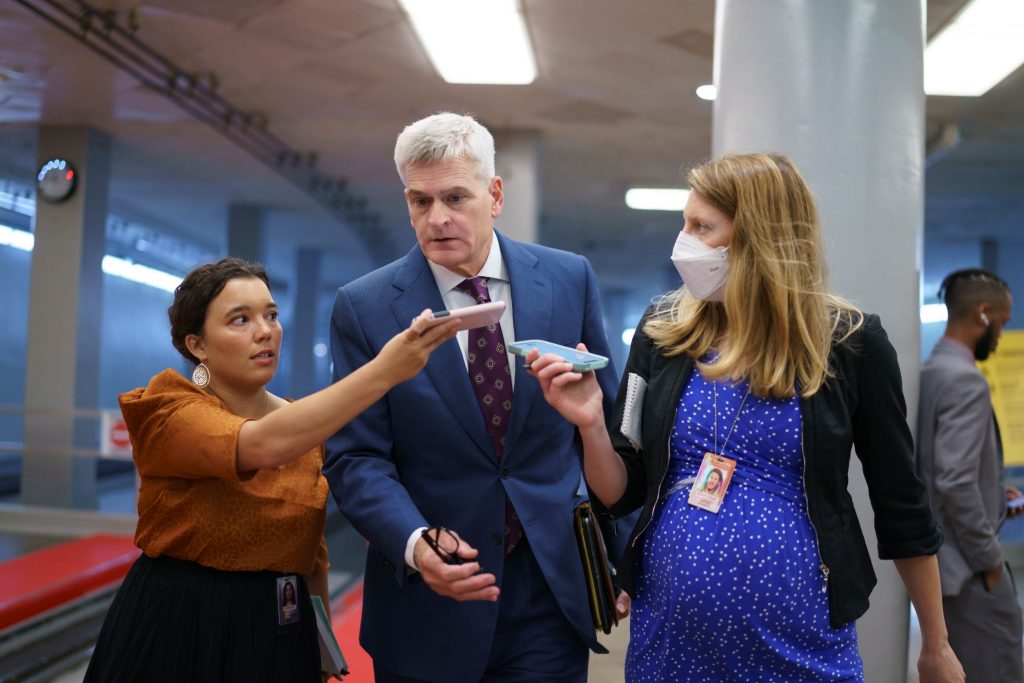
The breakthrough comes after days of speculation that the so-called Bipartisan Infrastructure Framework was on life support, and is the result of almost constant negotiating that often extended well into the night, every night, this past week.
Upon learning of the deal, Majority Leader Charles Schumer, D-N.Y., said the Senate should be prepared to vote again on cloture on the motion to proceed to the bipartisan infrastructure bill as soon as tonight.
To start debate, Schumer will need the support of 10 GOP senators in addition to all 50 of his members. Senate Republicans blocked a similar motion last week.
But developments are moving quickly on Capitol Hill today. Sen. Portman met with Senate Republican Leader Mitch McConnell earlier today to inform him of the deal, and Senate Democrats announced they would hold a special meeting of their conference this afternoon.
For all this activity, however, one important detail remains — finalizing the legislative text of the infrastructure package. And that effort will likely extend through the weekend.
This morning, during an appearance at a live event hosted by Punchbowl News, Sen. Mark Warner, D-Va., quipped “To my friends in the press, I would cancel your weekend plans and then cancel all your dinner plans for the foreseeable future.”
Traveling in Lower Macungie Township, Pennsylvania Wednesday afternoon, President Joe Biden initially refrained from discussing the deal on Capitol Hill, telling reporters traveling with him that he was “talking about manufacturing today.”
Later, however, he released a lengthy statement that said in part:
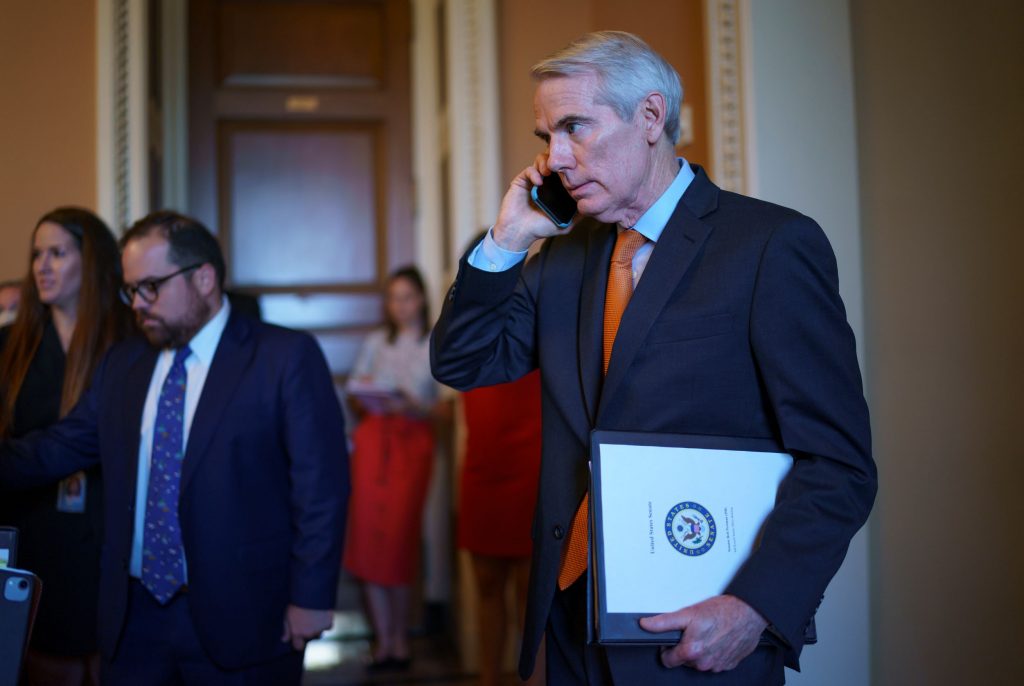
“This deal signals to the world that our democracy can function, deliver, and do big things. As we did with the transcontinental railroad and the interstate highway, we will once again transform America and propel us into the future.
“This deal makes key investments to put people to work all across the country—in cities, small towns, rural communities, and across our coastlines and plains.
“It will put Americans to work in good-paying, union jobs repairing our roads and bridges. It will put plumbers and pipefitters to work replacing all of the nation’s lead water pipes so every child and every American can turn on the faucet at home or school and drink clean water—including in low-income communities and communities of color that have been disproportionally affected by dangerous lead pipes.
“Americans will build transmission lines and upgrade our power grid to be more resilient and cleaner. Americans will strengthen our infrastructure, like our levees, in the face of extreme weather like superstorms, wildfires, droughts, hurricanes, and heat waves.
“American workers will make a historic investment to install the first-ever national network electric vehicle charging stations and undertake critical environmental clean-ups.”
The president went on to describe the bipartisan deal as “the most important investment in public transit in American history and the most important investment in rail since the creation of Amtrak 50 years ago,” adding, “It will deliver high speed internet to every American.”
“And, we’re going to do it without raising taxes by one cent on people making less than $400,000 a year — no gas tax increase and no fee on electric vehicles,” Biden said.
“Of course, neither side got everything they wanted in this deal,” the president noted. “But that’s what it means to compromise and forge consensus — the heart of democracy. As the deal goes to the entire Senate, there is still plenty of work ahead to bring this home. There will be disagreements to resolve and more compromise to forge along the way.
“But the bottom line is — the Bipartisan Infrastructure Deal is a blue-collar blueprint to rebuild America that will help make our historic economic recovery a historic long-term boom,” the president said.
According to the White House the Bipartisan Infrastructure Deal:
- Will invest $110 billion of new funds for roads, bridges, and major projects, and reauthorize the surface transportation program for the next five years building on bipartisan surface transportation reauthorization bills passed out of committee earlier this year;
- Includes a total of $40 billion of new funding for bridge repair, replacement, and rehabilitation, which is the single largest dedicated bridge investment since the construction of the interstate highway system.
- The bill also includes a total of $17.5 billion for major projects that are too large or complex for traditional funding programs but will deliver significant economic benefits to communities.
- Invests $11 billion in transportation safety programs, including a new Safe Streets for All program to help states and localities reduce crashes and fatalities in their communities, especially for cyclists and pedestrians;
- Invests $39 billion of new investment to modernize transit, and improve accessibility for the elderly and people with disabilities, in addition to continuing the existing transit programs for five years as part of surface transportation reauthorization;
- Invests $66 billion in rail to eliminate the Amtrak maintenance backlog, modernize the Northeast Corridor, and bring world-class rail service to areas outside the northeast and mid-Atlantic.
- Within these totals, $22 million would be provided as grants to Amtrak; $24 billion as federal-state partnership grants for Northeast Corridor modernization; $12 billion for partnership grants for intercity rail service including high-speed rail; $5 billion for rail improvement and safety grants; and $3 billion for grade crossing safety improvements;
- Invests $7.5 billion to build out a national network of EV chargers;
- Invests $2.5 billion in zero emission buses, $2.5 billion in low emission buses, and $2.5 billion for ferries;
- Creates a first-ever program to reconnect communities divided by transportation infrastructure. The program will fund planning, design, demolition, and reconstruction of street grids, parks, or other infrastructure through $1 billion of dedicated funding;
- Invests $17 billion in port infrastructure and $25 billion in airports to address repair and maintenance backlogs, reduce congestion and emissions near ports and airports, and drive electrification and other low-carbon technologies.
- Makes communities safer and infrastructure more resilient to the impacts of climate change and cyber attacks, with an investment of over $50 billion.
- Invests $55 billion in clean drinking water, including dedicated funding to replace lead service lines and the dangerous chemical PFAS (per- and polyfluoroalkyl);
- Makes a $65 billion investment to ensure every American has access to reliable high-speed internet with an historic investment in broadband infrastructure deployment;
- Invests $21 billion in environmental remediation;
- INvests $73 billion in clean energy transmission.
In the years ahead, the White House said, the deal, which will generate significant economic benefits, and it is financed through a combination of redirecting unspent emergency relief funds, targeted corporate user fees, strengthening tax enforcement when it comes to crypto currencies, and other bipartisan measures, in addition to the revenue generated from higher economic growth as a result of the investments.


















